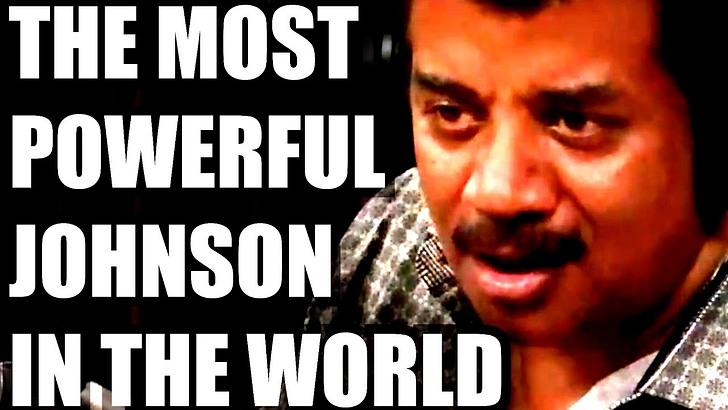Seduce the whole world
Part 2: Ethos, gossip, legibility and Aella
Part 1 here.
As longtime readers know, I have a basic policy on takes: I either abstain from posting them or, in my infinite service to humanity, try to look at whatever thing we’re supposed to talk about but with fresh eyes so that I can fill in what’s missing from the cultural landscape. It’s one thing to understand the urgent and arbitrary dynamics of The Current Thing, but it doesn’t excuse you from dealing with firmware updates as you encounter the takes, tantrums, and slogans of your fellow humans’ hijacked operating systems. We end up witnessing industrial-scale sloppistry of the shammiest kind. A whole ecosystem replete with many a Clippy and Agent Smith happy to tap you on the shoulder and stop you from waking sheeple to the simulation they’re in and teaching them powerful concepts from the Ancient Problemz lexicon like vindictive gendercourse and penistography.
All of this is to say that, I’m here on the scene, late as usual, bringing a less moralistic approach to the whole Aella controversy from earlier this month. Rather than weighing in on whether to shame her or not, I want to get descriptive about some of the dynamics at play, to make a few points on persuasion and public image.
First, three reasons I’m taking this no-shaming angle:
I’m like the Bonnie Blue of hatred. I already have too many negative thoughts about too many people. At a certain point, you look at your injuries, your stretch marks, how much you’re spending on assistants, medics, and cleanup crews. You’re dehydrated and you keep confusing each person for the last. There’s a point when your body just can’t take it like it used to and, if I want to have any career at all in this game, I’m going to have to look out for my own wellbeing. Having takes on most people’s tweets or sex lives is not going to improve my life or yours. Having a take on Aella’s is no different. If I’m going to bully someone on here, I want it to be worth it. Examples here, here and here.
I’m a sperg and so, while I don’t necessarily feel the pull toward having an emotional or moralistic response to Aella, I have a didactic impulse to describe some of the dynamics at hand between Aella and her haters. Like a tornado, there are conditions that cause this type of phenomenon regardless of your opinions on Aella or her haters.
It’s a great case study in ethos, gossip, and legibility, three topics I’ve been thinking about regarding persuasion and this gives me an excuse to write about them.
Instead of recapping the whole debacle, I’ll just link to my esteemed colleague
’s post, which doesn’t give a comprehensive play-by-play but was one of the more enjoyable pieces on The Situation. Those who enjoy it will be pleased to see an epistolary battle between Rohan and ensue. Like Highlander but with qwerty and minor invective.NB: None of what I’m writing is advice to Aella (although, what’s up if you’re reading). This is description + advice for all the Not-Aellas out there in SubSpace.
Building your cred
My interest in The Former Thing/Aella Situation cuts to my deeper interest in persuasion, which is often but not always a matter of popularity. For one thing, popular people tend to be more persuasive in general, which is why the DNC seeks to rendition its own Joe Rogan, someone already popular who can launder unpopular ideas–this as opposed to drafting ideas so popular your mother-in-law could convince you of them.
The most important property of popularity I want to express is its stickiness. To be clear, popularity can come and go but generally does so on long timelines, growing or decaying slowly unless there is serious reputational damage that ruins one’s credibility. A great example of a popular person who has stayed popular through recent controversy is Donald Trump Glenn Greenwald. As I’ve pointed out, very little of what people are supposed to rage over corresponds to anything Greenwald’s fans would really care about nor does it surprise all that many people to know that an otherwise buttoned up gay man likes to play dress-up in the privacy of his own iCloud.
I know it’s a bit tautological but popular people have the ability to guide consensus in a way regular mortals can’t. This guidance can last for at least as long as Mr. or Ms. Popular still breathes. As
documents of the Iron Sheik, you can even have a resurgence after you’re dead.However, I’m not that interested in immortality or popularity. In fact, as I wrote in Part 1,
While I’m not exactly Mr. Popular all the time, largely owing to antisocial traits that expose themselves on a long enough timeline, I worked in sales and have the receipts (USD) that I can be extremely popular when the incentive to be so meets the criterion that I not be asked to perform for too long.
I’m more interested in persuasion and one of the keys to persuading someone (unless you are pulling some crafty misdirection) usually means getting to a place where your interlocutor doesn’t hate you. Just because your relationship may be necessarily antagonistic, as is the case when you want to sell something for more money than someone would like to pay for it, doesn’t mean you have to hate each other and that you can’t both walk away happy with what you got.
One of the necessary components of not being hated owes to ethos. Ethos is basically ancient Greek for reputation. While logos refers to your logic and pathos to the feels in your argument, ethos is your credibility and where you’re coming from. This cred, like popularity, is sticky. You build up a reserve by having it tested for a long time. The more instances and calendar days in which you seem consistently credible, the more credible you become.
If you want to see this play out, see what happens when you, a high school prole, try to dunk on the quarterback for doing something prolish himself, like eating a tuna fish sandwich for lunch. And notice how everyone stares at you like you have three heads. They begin extolling the virtues of a good, reliable tuna fish sandwich. In fact, if the guy is a true Chad, he will make tuna fish the biggest thing to meet sliced bread. He will have every hot-girl Stacey and chiseled-jaw Chadwick laugh at what kind of moron could possibly turn his back on such an affordable and nutritious lunch that’s just as in vogue as the newest Jordans. The only debate will be which bread is best, crust on or crust off?
As I write in Three Uncomfortable Truths, “Hypocrisy should be avoided; yet you should increase your budget for it.” Which is to say that the best way to have people turn a blind eye to an errant bad decision (such as choosing the wrong type of sandwich or displaying something that more resembles hypocrisy), is to keep them rare so that when one considers the totality of who you are against what you’ve recently done, it becomes unpleasant and optically hostile for them to come for you. In the same way I abstain from being a dick to Aella out of my own self-interest, between the fact that the mob will inevitably get angrier at you, a prole, for being a hater than the person you’re hating on, and the fact that it will lower your status even further than it already is, you want to be the person with the big fat budget of social capital and not the person spending what little they have to embarrass themselves. Dislike them all you want; these dynamics endure. One thing I respect about Aella is the number of people who know her offline rushing to her defense. It shows that she checks off some of the other boxes I write about in the same piece.
Three Uncomfortable Truths
"The one thing I know, everyone respects the true person and everyone's not true with themselves. All of these people who are heroes, these guys who have been lily white and clean all their lives, if they went through what I went through, they would commit suicide. They don't have the heart that I have. I've lived places they can't defecate in."
I’m really trying to drive home the temporal component. You earn credibility by constantly investing in your character with consistently good actions across a long timeline, understanding the asymmetry that negative impressions, however out of character, carry like ~20x the weight of positive interactions. This may seem obvious enough but few are able to articulately consider the counterfactual that, if someone gets the sense you’re not interested in whether the product they’ve purchased works after you charge their card, they’ll see you as less credible than you could be and seek retribution in the forms of remuneration and reputational damage should you fuck them. The more someone gets the sense they have limited enforcement actions against you; fewer formal paths to get back at you, the more they will seek jihadi methods such as running off future customers, vandalism, false accusations, and other forms of criminal mischief that may or may not be proportional or have anything to do with justly addressing their grievance. For this reason, women (and many men) will scorn you if you have sex with them under the auspices that it will be followed by more sex and respect that never comes. You ruin your credibility on one of the most important topics around and people get mad.
Limiting gossip by controlling your image
Speaking of…one of the problems with sex and gossip about sex is it’s just so damn salacious. On an intellectual level, I can divorce myself from the desire to know who this or that person slept with, how they look naked, what kinks they have, but flash a news story about someone’s affair, their leaked nudes, the fact that they like to dress up like Aunt Jemima and spit high fructose corn syrup on their partners and, all of a sudden, I turn into a braindead voyeur. My point is that people can only retain so many details and ideas that pertain to you and, if you give them any details about yourself that are more interesting than the ones you want them to retain, then they won’t match you with your preferred ones and will instead reduce you to the juicy ones.
Rather than talking about how no reputation will ever really precede your name like a reputation for sexual prolificity. I’ll tell another story about my days in sales. This isn’t Biggest Piece of Shit Ever.
Back when I worked for the major globo gym where I cut my teeth selling big-ticket training packages, I started out once again not very popular. For once, this was only about 20% my fault for basically thinking that selling a bunch of shit would satisfy corporate overlords enough that I didn’t have to laugh at my bosses’ jokes and 80% the fact that I had recently been absorbed in a hostile takeover and management just didn’t like us. Plus, I had a boss who was an absolute dick and we would butt heads now and then. But the longer I worked, the better I got and more money I made, quickly skewing the ratio of positive views of me to negative ones.
One day, someone I had just signed up was walking out of my office to start their first workout when I began pitching training to them–normally people would sit for a second to let you wrap up your pitch and welcome them to the gym. Even though they had their key tag in hand and were literally in the threshold of my office when I started, they stopped where they were, listened, and within about 90 seconds told me to run their card for $2,000. I had found a quick and truthful way to pitch real changes one could expect and I began abbreviating my pitch for antsy or sales-averse people who normally give you as little money as possible. It worked incredibly well both for my gross sales but also at the marginal levels of, well, penetration.
Despite about 11 months of hazing me, I came out of one of their shittier locations one of their best sales guys in the company and, when they moved me to a palace, I absolutely fucked it up, putting up two sales each worth $2,000 on my first day, before I’d even left my office to see the gym. Eventually management got ahold of me and tried to figure out if I had made a deal with the devil, found a magical way to misrepresent the product, or was threatening violence on people to make my numbers.
So I used the opportunity to make my own lore, which was essentially true anyway. I told them I had begun pitching training in a way that not only sold on results but took up as little of the customer’s time as possible, a useful quality in New York City where the overwhelming vibe of the city is hurry-the-fuck-up. It became apparent that people only had room to know two or three things about me, especially in a large company where gossip travels fast but most people have little physical exposure to you. I displaced the idea that I was an asshole with the idea that I was quick (successful) and I became known as the 90-second presentation guy. While it’s not so much that people changed their mind and decided I was no longer an asshole; they just realized whatever data they had that proved it was completely drowned out by my creativity and production. It basically became as relevant as what I was eating for lunch that day. I became the Chad.
When you do this right, others will participate to grow your mythology. The Big Boss, for instance, helped spread word of my accomplishments. He liked to play people off each other and whisper in colleagues’ ears how they used to be good and were they going to just sit there and let me mog them all day.
My status within the company grew. I was asked to train new or struggling employees and train competent ones how to be better and faster. I received awards and money. Each of these results was the natural progression that should be expected from someone who controls how many stories you truly have about them being an asshole versus the mountain of data showing you’re actually just rarified talent. Had I given them more salacious stories, whether about me mouthing off to another employee or just a sexcapade, I could easily expect to have my reputation change from rare talent to scumbag whether I like it or not. For this reason, many bitter untalented people will make up stories about your speech and sexual advances when they want to ruin you.
Legibility
My last point expands on the idea that the reason you want to limit your exposure is to increase your legibility which is just another word for predictability. Just as it can be difficult to read a book whose pages have been splattered with additional ink, crowding people’s brains with too many facts about yourself, will decrease the feeling that you’re legible to people and make them uncomfortable. And, while people may like a little bit of unpredictability in their romantic relationships, people generally dislike unpredictability on the road, in the office, and any number of other situations you can imagine. Admitting to something almost no one would do will have an overwhelmingly bad effect on your legibility in the way that disclosing you once killed a man or had sex for money will. It will be hard to see you as just another accountant in the office if you do so.
One of the reasons I out-earned many of the people who outranked me but never made it to their ranks is that I was never sufficiently legible to my bosses. I know this because even my favorite bosses at my favorite company would tell me that no one ever knew what was going to come out of my mouth. It’s possible that the same thing that made me a good, funny, spontaneous salesperson, also made me a bad coworker because the same tongue that can spew hatred, can really seduce you when it wants to. You have to understand how to channel potency with your words and diving into hateful words can also sharpen your skills when speaking kindly but again, the trick is to be deliberate with both your intentions and word-selection. As
points out, hatred is much closer to love than it is to indifference.I realized that at any given moment, I may have had the logos to back my sales techniques and product knowledge, and the pathos to tug on your heart-strings, to let you know about all the nice things that await if only you’d only make the purchase, my ethos within the company, among people who dealt with me repeatedly rather than just once, it was mostly performance-based and therefore came off as cocky whether deservedly so or not. I never supplied a positive vision of myself as, say, a family guy, or a guy who liked to go bird-watching or hiking or anything PG-13. I was basically considered someone motored by money, girls, and getting tipsy, three areas of competition completely inappropriate to talk about and, worst of all, I had fun in my quest for all three whereas they usually cause anxiety for those with factory settings. Whether you like to get drunk and sleep with yoga teachers shouldn’t have much effect on whether you are an expert in sales or not but it does affect your ability to sell yourself to those who need to hear your expert opinions, those responsible for metabolizing your ethos, pathos, and logos together.
For these reasons I’m not sure I’m in a position to publicly call out Aella. But as the Bonnie Blue of hatred, I can at least speak to why so many people refuse to take me seriously.









I used to despise her as one of the top patriarchy madams, recently I read her post about the religious abuse she suffered growing up and now I see that her entire persona is a mix of self trashing (maladaptive coping mechanism people with BPD and other cluster b disorders use to cope) and trauma reenactment. Her entire life is modelled around being "progressive" to the point of promoting a degrading lifestyle that is void of substance. I have come across thousands of "open marriages", "cuckolding lifestyles", orgies and other crap in my years in the sex industry and they dont work. Very few people have the emotional maturity or natural inclination for polyamory, 99% of the times is either perpetuating compulsive sexual trauma, or trying to revive a dead marriage or a cheater and a codependent.
Who is Aella?